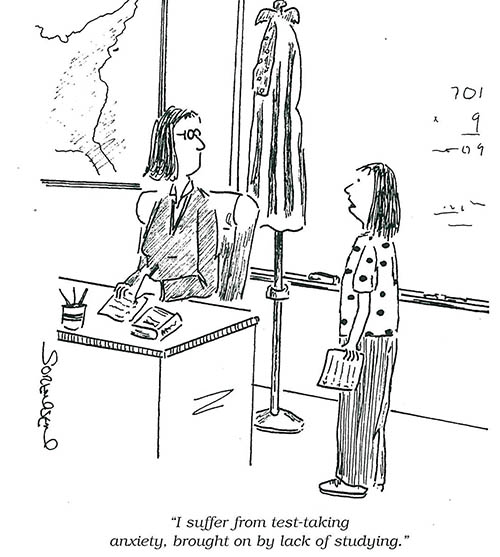Pre-2017 BC Social Studies 11
A wander through modern Canadian history & human geography, society & identity, economy & environment, autonomy & international involvement, and your own connections to Canada's past, present, and future.
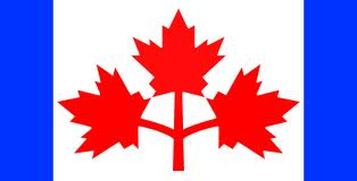 Pearson Pennant - shortlisted nomination for Canada's new flag in 1965
Pearson Pennant - shortlisted nomination for Canada's new flag in 1965
The big idea of Canadian Identity will accompany the entire course, as well as a persistent question: Why Bother Voting? The focus questions below form the basis of the lessons, activities, and assessments -- the things that students do or achieve to show that they have addressed the focus questions (met the learning outcomes, demonstrated understanding). Skills such as map literacy, critical thinking, effective research, current events, communication, and active citizenship will relate to many of the learning outcomes. Students personal/family/cultural connections to the events and themes of the 20th Century in Canada will be explored and celebrated.
See the PDF VERSION for SS11 Course Outline, Student Expectations, etc.
There are two projects in this course: a smaller one alongside Unit 2, the Citizenship Project, and a larger one alongside Unit 3-7, the ECHO Project.
All other course handouts and assignment descriptions are linked below. Send me a note if you don't see something you would find useful.
See the PDF VERSION for SS11 Course Outline, Student Expectations, etc.
There are two projects in this course: a smaller one alongside Unit 2, the Citizenship Project, and a larger one alongside Unit 3-7, the ECHO Project.
All other course handouts and assignment descriptions are linked below. Send me a note if you don't see something you would find useful.
1. Too Big for Our Planet
Challenges Facing Canada & the Global Community
About two weeks - Lessons 1A-1F Counterpoints Ch. 11/12, other resources Assignment: Demographic Study - Comparing Nations
2. Canadian, Eh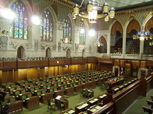
Politics, Government, and Identity
About two weeks - Lessons 2A-2F Counterpoints Ch. 9 & 1, other resources Political Parties Webquest Active Citizenship Project
3. Growing Pains
The Great War & the Roaring Twenties, 1914-1928
About 3 weeks - Lessons 3A-3J Counterpoints Ch. 2/3, other resources Letter from the Front
4. Crisis and Survival
The Great Depression and World War II, 1929-1945
About 3 weeks - Lessons 4A-4G Counterpoints Ch. 4/5, other resources Begin ECHO project
5. Television and Beyond
The Cold War and Postwar Shifts in Canada 1945-1964
About 2 weeks - Lessons 5A-5F Counterpoints Ch. 6 (7/11), other resources Continue ECHO Project
6. What Kind of Society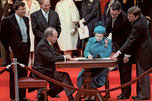
Quebec Nationalism, Constitution, Charter, 1965-1983
About 2 weeks - Lessons 6A-6F Counterpoints Ch. 7/8/10, other resources Complete ECHO Project
7. Pepper on my Plate
Society, Economy, Rights, Environment 1984-2001
About 2 weeks - Lessons 7A-7F Counterpoints Ch. 8/13, other resources Present ECHO Project
8. The Global Village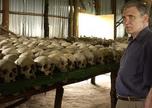
Global Issues & Human Rights, late 20th Century to present
About 2 weeks - Lessons 8A-8F Counterpoints Ch. 8/10 (13), other resources UN Debate: Canada as Middle or Model Power
|
Check Student MarksStudent ExpectationsYour teacher does not have many rules... more like a "way of being" that makes sensehe hopes others will try while in the class. At its core, this is about a few principles that students should keep in mind and will be expected to work towards while taking this course:
AssessmentAssessment happens all the time -- when our questions are answered, when we think about whether we understand, something, when you get feedback on something you have said or done, and when you get evaluated on things you've turned in.
The "summative" parts -- the assessments your teacher uses to prepare reports and assign marks -- are generated from the work you submit (e.g. smaller assignments like the Political Parties Webquest), the projects you complete (e.g. the Echo Project), and the tests you write (e.g. Unit Tests with critical thinking questions and access to your notes). You must actually do the work to get the marks, just as you have to actually be here if you want the benefit of the lessons. Your teacher will accept late work up to a point -- normally up to the end of the next unit or 3 weeks, whichever comes first. After that it is past due and you must make a new or different attempt to demonstrate your understanding of missed learning outcomes. Ask your teacher for suggestions about this. Your teacher believes this reflects the principles listed above, especially mutual respect (for the teacher and the other students) and self-reliance. It is very important that you reflect on how things are going for you as often as you can, and come talk to your teacher when you need help. Usually, there is some time set aside in each class for this purpose -- ask a question, share what you are working on, get a concept explained, or challenge an idea. It is especially important to reflect on your note-taking after a test. Were your notes useful? If not, how could you do them differently in the future? Your teacher and often your classmates are here to help you learn. We're not as direct or fast as a google search, but we know how to laugh, ponder, and provoke. Anticipated Test Dates for Sem1 2015-16
U1 Tue., Sep 22 U2 Wed., Oct 14 U3 Wed., Nov 4 U4 Mon., Dec 1 U5 Thu., Dec 17 U6 Tue., Jan 12 U7 Wed., Jan 20 These 7 Unit Tests are open-notes, and deal with both the content from the lessons and interpretation of primary sources and prompts related to the lessons. If your notes are done and you've been actively engaged in class, these tests should not be difficult. If however, your notes are incomplete and you have not been engaged in class, these tests will make you feel anxious and perhaps a bit melancholy.
WE HAVE NO TIME MACHINES Please don't wait for the end of the course to start wondering how to get the wheels back on the bus. By Grade 11 it is hoped that students can recognize when they need to ask for help. It sometime feels like a relief to put off "dealing with your stuff" but it feels even better to know you tackled a problem and found success. I am not the kind of teacher that passes students from grade to grade just for showing up, or calculates grades by adding up completion scores -- Social Studies 11 is demanding course that requires students to demonstrate their understanding of key themes in Canada's past and present: Politics & Government, Society & Identity, Autonomy & International Presence, Environment & Economy. Links & Resources for SS11 |
